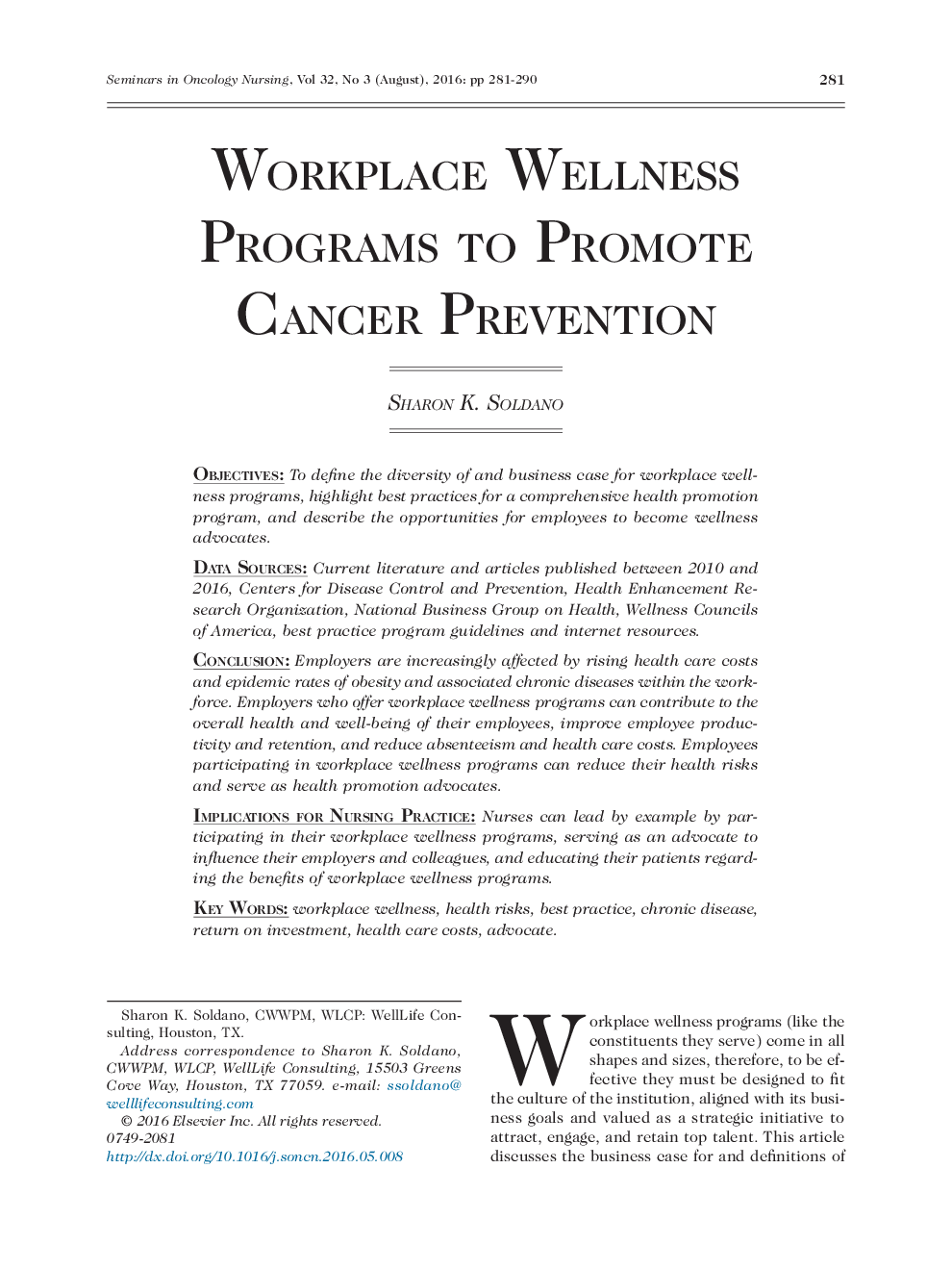| Article ID | Journal | Published Year | Pages | File Type |
|---|---|---|---|---|
| 2676125 | Seminars in Oncology Nursing | 2016 | 10 Pages |
ObjectivesTo define the diversity of and business case for workplace wellness programs, highlight best practices for a comprehensive health promotion program, and describe the opportunities for employees to become wellness advocates.Data SourcesCurrent literature and articles published between 2010 and 2016, Centers for Disease Control and Prevention, Health Enhancement Research Organization, National Business Group on Health, Wellness Councils of America, best practice program guidelines and internet resources.ConclusionEmployers are increasingly affected by rising health care costs and epidemic rates of obesity and associated chronic diseases within the workforce. Employers who offer workplace wellness programs can contribute to the overall health and well-being of their employees, improve employee productivity and retention, and reduce absenteeism and health care costs. Employees participating in workplace wellness programs can reduce their health risks and serve as health promotion advocates.Implications for Nursing PracticeNurses can lead by example by participating in their workplace wellness programs, serving as an advocate to influence their employers and colleagues, and educating their patients regarding the benefits of workplace wellness programs.
